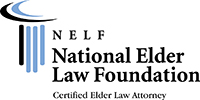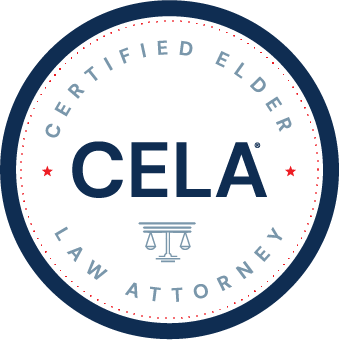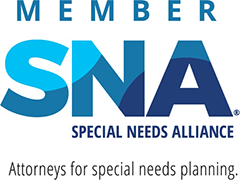Firm News
Nursing Home Admission Contracts
Moving a family member to a nursing home is never a simple process. Finding the right facility, coordinating the move, managing a very sick family member and dealing with all of your emotions will easily overwhelm most of us. To make matters more difficult, the nursing home is asking you to sign a very complicated admissions agreement. Here is what you need to know before you sign.
Most important, don’t feel pressured to sign the agreement without reading it. Take the time to review the agreement with your attorney because it may contain provisions that make you personally responsible for the bill. If possible, try not to sign the agreement until after the family member has moved into the facility. Once your family member has moved in, you have much more leverage. But even if you are required to sign the agreement before they move in, you need to pay very close attention to a couple of provisions.
You should not agree to a provision in the contract that makes you the "responsible party." A “responsible party” is the person who is ultimately required to pay the bill. Becoming a “responsible party” is like co-signing or guaranteeing a car loan with one big difference. Nursing homes are prohibited from requiring third parties to guarantee payment of nursing home bills. Always keep in mind that it is not illegal for the nursing home to request that you voluntarily agree to be the “responsible party”. It is only illegal for the nursing home to require that you sign as the “responsible party” as a condition to admitting your family member.
It is better if the family member moving in to the nursing home signs the agreement. If that is not possible, you should make certain that you are signing the admission agreement in your capacity as the agent under a financial durable power of attorney. You should not sign the agreement in your individual capacity. If you do not have a financial durable power of attorney, it may be necessary to start guardianship proceedings for your family member.
Many admission agreements include a provision that requires all disputes regarding the resident's care to be decided by arbitration. An arbitration provision is not illegal, but by agreeing to such a provision you give up your right to go to court to resolve a dispute with the facility. The nursing home cannot require you to sign an arbitration provision as a condition to admit your family member, but they almost always include an arbitration provision. We recommend that you cross out the arbitration language in the agreement before signing.
You should also be aware of other provisions that nursing home cannot require as part a mandatory part of the admission agreement. Remember, just because the law makes it illegal to require such a provision does not mean the nursing home cannot request that you voluntarily agree to it.
1. A nursing home cannot require a Medicare or Medicaid recipient to pay the private rate for a period of time. The nursing home also cannot require a resident to affirm that he or she is not eligible for Medicare or Medicaid.
2. The nursing home cannot evict a resident for any reason other than the following: the nursing home cannot meet the resident's needs, the resident's heath has improved, the resident's presence is endangering other residents, the resident has not paid, or the nursing home is ceasing operations.
3. Additionally, any provision that waives the nursing home's liability for lost or stolen personal items is illegal. It is also illegal for the nursing home to waive liability for the resident's health.
Know your rights. Contact the Law Offices of Bradley J. Frigon before you sign a nursing home admission contract.












